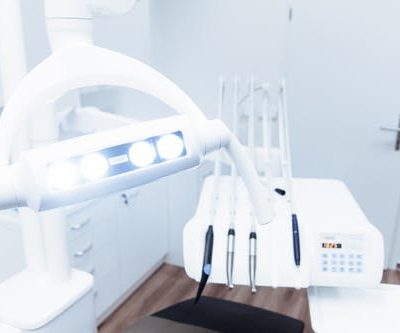Unpacking the Experience: Pre-Extraction Expectations
As you prepare for your wisdom tooth extraction, it’s essential to know what’s ahead. Understanding the process helps demystify the experience and alleviate any anxiety. Generally, during the pre-extraction consultation, your oral surgeon will provide a thorough explanation of the procedure. This will include any pre-operative instructions such as fasting or medications to avoid.
Additionally, the day before your surgery, it is wise to arrange for a friend or family member to drive you home post-extraction, as the sedation or anesthesia administered can impair your ability to drive. You’ll also want to stock up on soft foods and plenty of liquids since your eating habits will change temporarily after the procedure.
Immediate Aftermath: The First 24 Hours
Immediately following the wisdom tooth extraction, you will likely feel the effects of the anesthesia or sedation. Most people experience some level of sleepiness and a reduced sense of coordination. Your mouth will be packed with gauze to help stop the bleeding and encourage clot formation.
The first 24 hours are crucial for recovery. It’s vital to follow your surgeon’s instructions regarding medication, such as antibiotics to prevent infection and painkillers to manage discomfort. Swelling and minor discomfort are to be expected, but they are usually well-managed with ice packs and the prescribed medications. It’s best to stick to liquids or very soft foods during this period to prevent any disturbance to the surgical area.
Post-Extraction Discomfort: Managing Pain and Swelling
Pain and swelling are typical parts of the healing process after a wisdom tooth extraction. The intensity can vary significantly among individuals, depending on factors like the complexity of the extraction or the age and overall health of the patient. Over-the-counter pain relief medication or those prescribed by your dentist can be a lifeline.
Applying ice packs to your cheeks for 15-20 minutes every hour can reduce swelling. Keep your head elevated even while sleeping, which helps minimize swelling and aids in quicker recovery. Staying hydrated is key, too, but make sure you avoid using straws as the suction can disturb the healing tissues.
Taking Care of Your Oral Hygiene
Your surgeon will likely advise you on the best practices for oral hygiene post-extraction. You’ll need to be extra gentle around the extraction site to prevent dislodging the blood clot – a condition known as dry socket, which can be quite painful. It is usually safe to brush the rest of your teeth, but steer clear of the surgical site.
Rinsing your mouth with a saltwater solution starting 24 hours after surgery can clean the area without harshly agitating the tissues. A gentle swish can help you maintain oral hygiene without risking irritation to the area healing from the extraction.
Adjustments to Eating and Daily Routine
The dietary adjustments post-extraction are temporary but necessary. You’ll want to stick to a soft-food diet for at least a few days to avoid causing trauma to the healing gums. Foods like mashed potatoes, yogurt, applesauce, and broths are great options.
Gradually, you can start introducing more solid foods back into your diet as you feel comfortable. The key is to listen to your body. Beyond dietary changes, you may need to adjust your exercise routine. It’s generally advisable to take a break from vigorous workouts, as increased heart rate and blood pressure can result in prolonged bleeding.
Recognizing Complications: When to Seek Help
While complications after wisdom tooth extraction are not common, they do occur. Knowing the signs of such complications can prevent minor issues from escalating. Dry socket, characterized by severe pain after a few days of the extraction, is one of the most common complications. If you suspect you have a dry socket, contact your oral surgeon promptly.
Infection is another possible complication, although less common. Symptoms include fever, worsening pain, swelling that won’t dissipate, or pus exuding from the surgical site. Any of these signs warrant immediate medical attention.
Scoping Out Alternatives: Implants and More
In some cases, wisdom tooth extraction might lead you to consider different types of dental procedures in the future. For instance, if there’s a concern about missing teeth or preserving oral structure, you might explore dental implant services to restore and enhance oral functionality.
Wisdom tooth extraction is a localized surgical procedure, but its effects may lead to considerations of additional treatments, especially if complications impact adjacent teeth or jawbone structure.
The Role of Professional Guidance and Aftercare
Despite the availability of online resources, professional guidance remains irreplaceable. Ensuring a smooth recovery largely depends on adhering to aftercare instructions provided by your surgeon. Clinics like those offering wisdom tooth extraction in Louisville, KY are equipped to provide comprehensive pre and post-procedure care to minimize complications.
Routine follow-up visits can be an essential aspect of your recovery process. These are opportunities for your oral surgeon to monitor your healing and address any lingering issues.
Understanding the Intersection of Oral and General Health
The extraction of wisdom teeth isn’t purely an oral health issue; it can intersect with your overall well-being. For example, unresolved issues with wisdom teeth could potentially affect your ability to sleep well. If you notice sleep disturbances post-extraction, consider click for more details on treatments addressing oral contributors to sleep disorders.
The synergy between oral and overall health is increasingly acknowledged. Post-extraction care is a part of maintaining this balance, ensuring that your oral health supports your overall health endeavors.
Putting It All Together: The Road to Recovery
Recovering from a wisdom tooth extraction is a journey that involves understanding and patience. With proper care, most people recover fully within a week or two. Every individual’s recovery timeline will differ, but following your surgeon’s recommendations diligently sets the stage for an uncomplicated healing process.
As you traverse this recovery path, viewing your oral health in the context of your broader health goals can inspire more informed, health-supportive decisions. Remember, you’re not alone on this journey; resources and professionals are available to ensure you manage your recovery with confidence and minimal discomfort.



